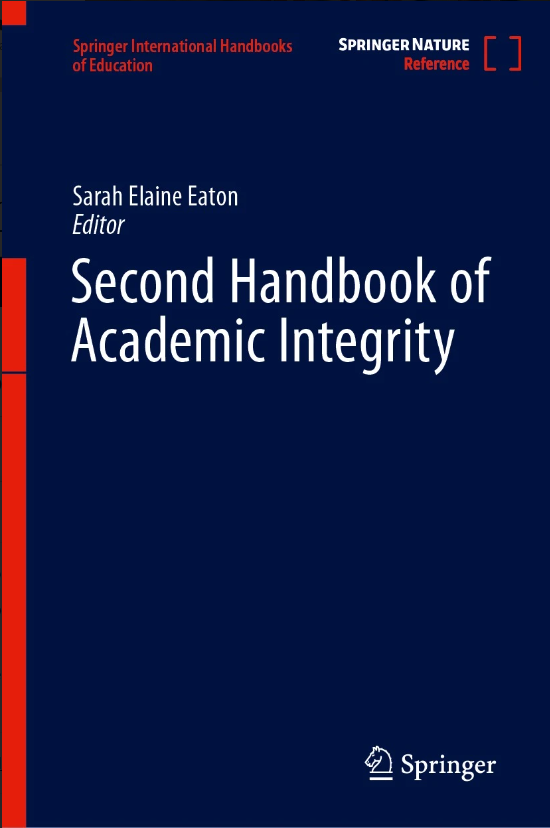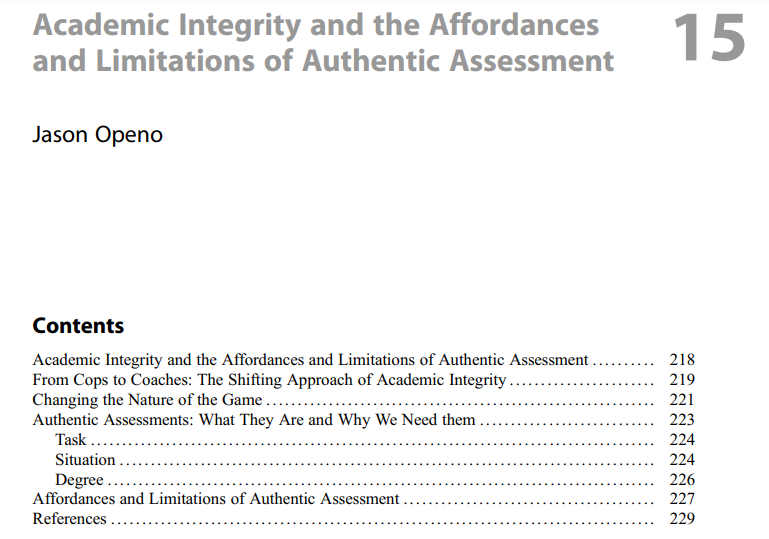With 112 chapters and just about 2,000 pages written by a diverse array of global authors, this is THE definitive resource exploring the various aspects of academic integrity in the contemporary postsecondary environment. I am thrilled to be part of Dr. Sarah Elaine Eaton’s project with my chapter in Part II - Academic Integrity Through Ethical Teaching and Assessment, edited by Dr. Brenda Stoesz. My chapter is entitled Academic Integrity and the Affordances and Limitations of Authentic Assessment.
Available at: https://link.springer.com/referencework/10.1007/978-3-031-54144-5
The thesis of my chapter is far from groundbreaking. More engaging and authentic assessments can neutralize (to some degree) the inclination for students to commit academic integrity violations. The sub-thesis is that better assessments can certainly help, but there are structural limitations that inhibit change. Postsecondary education is an ecosystem under stress, and this stress can inspire and crush pedagogical innovation at the same time, depending on the local institutional context.
Some have written that authenticity has not been well conceived. I believe my body of work contributes to this from two different lenses.
First, the lens of authenticity derived from Patrician Cranton and Ellen Carrusetta - who is our authentic teaching self? The best and most effective assessments have to be authentically aligned to our teaching identity and our educational values.
Second, authenticity is gauged by the degree to which real-world tasks take place in professional contexts and situations. This is an ideal that is often impossible to meet within the limitations of an educational setting, but instructors can often get closer than their current assessments afford.
I am not sure how much more I will have to say on academic integrity and/or authentic assessment. I am fascinated by both, but I’ve been writing on this for almost a decade now, and my research and writing interests are shifting in other directions. Still, based on the work I have done in both assessment and academic integrity, I think my work will remain relevant for the foreseeable future because assessment is slow to change, but the underlying principles provide a sound foundation for assessment design with technology.

